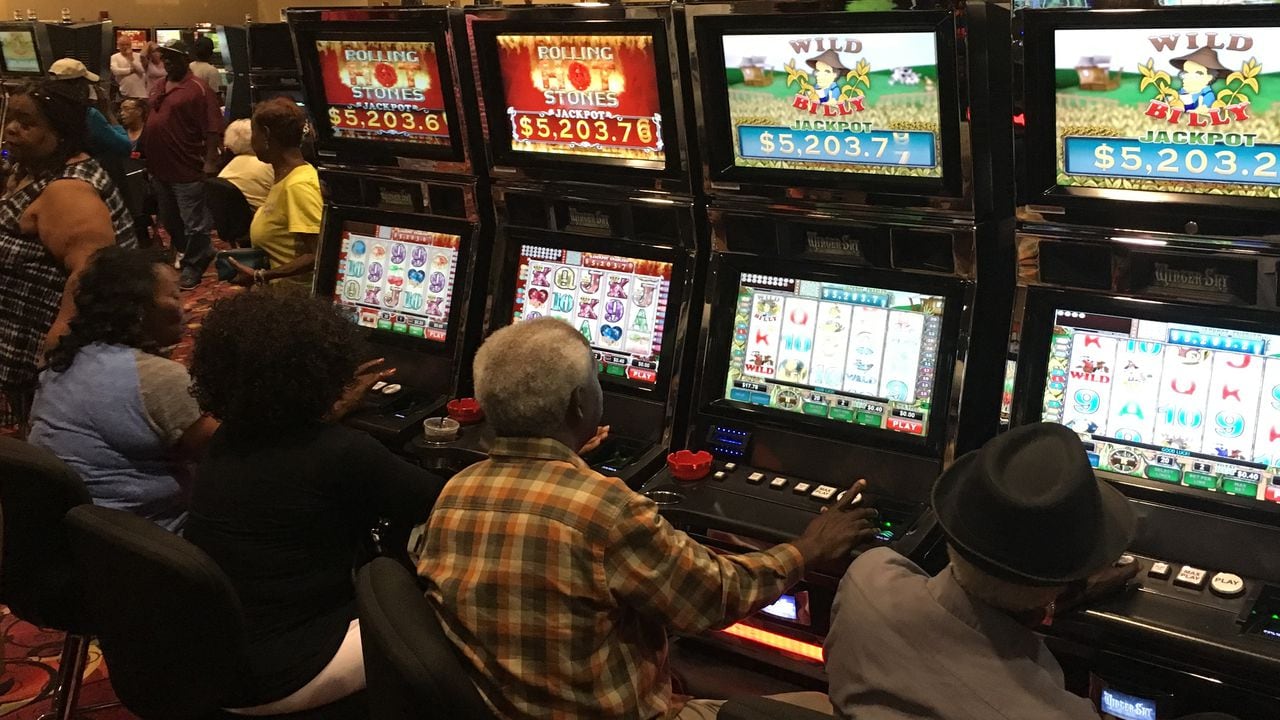Cameron Smith: The house always wins except at the Alabama legislature
This is an opinion column
A push to expand gaming and create a state lottery will again be on the agenda when Alabama’s legislature convenes in February. For decades, Alabamians have wondered why some slot machines operate with impunity while others are confiscated by the state. Gaming operators first explained that slot machines were really electronic bingo and now they’re historical horse racing. Most states in the country have some form of lottery, why doesn’t Alabama?
Don’t be confused. Just follow the money.
Start with the pieces of the game.
The Poarch Creek Indians are the big dogs in the yard. With three tribal casinos in Alabama, they have a significant investment in gaming and the cash to ensure those interests are protected. Right now the Poarch Creeks have Class II gaming such as slot machines, but they want full casino operations that come with Class III gaming under the National Indian Gaming Commission’s definitions. To do that, they need Alabama to either authorize full casino gambling elsewhere in the state or enter into a compact with the tribe.
For years, Victoryland ran the largest “electronic bingo” operation in Alabama helmed by the late Milton McGregor who was both a powerful political operative and gambling promoter. After closing its bingo operations, it now runs historical horse racing games in their place.
Greenetrack in Eutaw, Alabama, first established in 1977, offered horse racing and bingo before being hit with a 2022 Alabama Supreme Court decision requiring the business to pay $76 million in unpaid taxes. Now, the facility has reopened in the same location with new management under the name Greene County Entertainment (GCE). Like Victoryland, GCE now runs historic horse racing instead of electronic bingo.
There are also countless smaller gambling operations in Alabama ranging from a gas station slot machine all the way to gaming halls. Many of them engage in activities not legal under Alabama law, but spotty enforcement has always been an issue when it comes to gambling.
The last component is a state lottery. Five states don’t currently participate in Powerball: Alabama, Alaska, Hawaii, Nevada, and Utah. Alabama could run and regulate its own lottery system, it could participate in a multi-state lottery like Powerball, or it could do both. Alabama legislators understand that a lottery is effectively a regressive tax on lower income Alabamians, but the revenues a state lottery could generate are difficult to ignore.
Now that we’ve established who is playing the game. Let’s talk about how they interact.
Gaming operations print cash. The house always wins. That’s why so many operators are willing to either directly or creatively flout Alabama law. Some operators have simply treated unfavorable law enforcement as the periodic cost of doing business. Others stretch common sense by arguing that slot machines are not, in fact, slot machines.
Bingo is a kids game. We all know how to play. In Alabama, the Supreme Court has literally issued an opinion differentiating bingo from slot machines to eliminate any confusion. Now, historical horse racing is the latest attempt to pass off slot machines as legal gaming in Alabama. As a simplified explanation, historical horse racing employs a large hidden database of past horse races as the randomizer determining when slot machines hit.
Players in the Alabama gaming space take a serious risk with state law enforcement. At present, that’s enough to keep serious monied competition at bay. The political problem is that every last one of the major gaming operators wants exclusivity if gambling is legalized in Alabama. A few of the larger ones might settle for a cartel of limited licenses granted by the state, but they want Alabama to effectively operate as gambling security and toss out the smaller operations.
The state lottery is also a hostage to private gambling interests. If enacted, a lottery would be, by far, the state’s largest moneymaker in the gambling space. While operations like the Poarch Creeks don’t mind the paper scratch-off tickets, they’re not interested in competing with electronic and video lottery offerings. Gaming operators are also smart enough to realize that the general public is far more supportive of a lottery than it is of opening up casino-style gambling across the state. If a lottery becomes law, the economic incentive to deal with gaming wanes radically.
The challenge for Alabama’s conservative majorities is that Republicans generally oppose government-sanctioned monopolies not named Alabama Power. Picking winners and losers in a gambling deal which effectively rewards companies who haven’t been good faith adherents of Alabama law shouldn’t sit well with them. At the same time, Alabama’s strong Baptist opposition to gambling makes free market gambling competition a difficult pill to swallow.
So once again, Alabama will tackle gambling in an effort to increase revenue for the state, keep the Baptists from rioting, and ensure the gambling powerhouses are able to rig the new gaming environment in their favor.
The players and the games in Alabama’s gambling saga might be complex, but they are not complicated. Money drives politics, and the money hasn’t quite figured out how to get what it wants.
More Cameron Smith columns:
Smith is a recovering political attorney with four boys, two dogs, a bearded dragon, and an extremely patient wife. He’s a partner in a media company, a business strategy wonk, and a regular on talk radio. Please direct outrage or agreement to [email protected] or @DCameronSmith on X or @davidcameronsmith on Threads.
